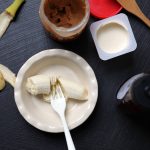
Providing veggies to your guinea pigs is a good way to make sure that they have a healthy diet. They are not only delicious, but they are also full of nutrients. They are a great addition to your guinea pigs diet and will keep them healthy and happy.
Contents
Asparagus
Among the many vegetables guinea pigs can eat daily, asparagus is considered to be one of the most beneficial. It is rich in antioxidants that protect the cells from oxidative stress, thus, boosting their immune system.
It is a good source of potassium, a mineral that helps in lowering high blood pressure. It also contains magnesium, which aids in the development of teeth and bones. Asparagus is also a good source of vitamin K.
The benefits of asparagus include boosting the immune system, promoting healthy heart and blood vessel function, and preventing urinary tract infections. It also contains flavonoids, which have anti-inflammatory and antiviral properties.
The best way to enjoy asparagus is to eat it fresh. You can prepare asparagus in several ways. For instance, you can chop it into small pieces or break it into bite-sized chunks. You can also cook it in butter or oil.
Bell peppers
Adding bell peppers to your cavy’s diet is a great way to help ensure a strong immune system. These peppers are rich in antioxidants and vitamin C. They are also a good source of fiber, which helps digestion. Moreover, bell peppers are low in calories, making them a healthy snack for your guinea pig.
If you want to introduce your guinea pig to peppers, you should be aware of the possible risks. They can be a choking hazard if they are too large or if they contain seeds. Also, the stem of the pepper is hard for your guinea pig to chew.
It is recommended that you only feed your cavy a few peppers at a time. In addition, you should monitor your cavy for a few hours after eating the peppers to check for digestive upset. If your cavy shows any signs of bloating, diarrhea, or a change in behavior, discontinue eating the peppers.
Celery
Despite its bad reputation, celery is safe for guinea pigs to eat. It provides your piggies with a variety of nutrients that keep them healthy. It is also a good source of fiber, which can help with their urinary system. It is also an excellent source of antioxidants, which help to protect your piggies’ cells from oxidative damage.
Guinea pigs can eat the whole stalk, including the skin. But, you should also be aware that celery contains oxalates, which can clog up your pet’s urinary system. These oxalates may lead to kidney stones and bladder stones.
It is best to wash celery before feeding it to your piggies. It is also a good idea to make sure the celery is completely fresh.
Guinea pigs have sharp teeth, so it is important to watch them carefully when feeding them celery. This is especially true when celery leaves are included in the mix. You may also want to cut celery into smaller pieces before feeding it to your piggies.
Broccoli
Among the many vegetables guinea pigs can eat daily, broccoli is a healthy and nutritious choice. It is high in Vitamin C and minerals. It also contains fiber, which is important for a pig’s digestive system. It is also low in calories.
Guinea pigs need to consume adequate amounts of Vitamin C. This is important because it prevents diseases like scurvy. They also need to get a healthy dose of Vitamin C to help maintain the health of their teeth and bones.
Guinea pigs also need fiber. This helps prevent diarrhea and maintains a healthy digestive system. Broccoli is a good source of fiber, so it’s a great choice for guinea pigs.
Guinea pigs can eat broccoli raw or cooked. If guinea pigs are being introduced to broccoli, it’s best to start by offering a small piece of the leaf. Then in a few days, offer them a slightly larger piece.
Timothy hay
Providing your guinea pigs with vegetables is an important part of their daily diet. This is a great way to get vitamin C into their system. However, it is important that you introduce these vegetables gradually. If you don’t, you may end up with a picky eater.
Providing your guinea pigs vegetables can be done in small amounts throughout the day. A cup of fresh vegetables should be given to your guinea pig each day. Some vegetables to consider include green peppers, red peppers, carrots, kale, parsley and peas.
Fruit is also important. Fruit is high in sugar and vitamin C. However, you should not feed your guinea pig fruit in large quantities. This can lead to medical problems. Instead, limit the amount of fruit your guinea pig consumes to once a day.


